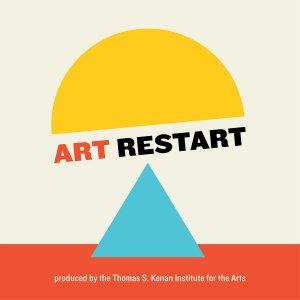Art Restart

Marin Alsop
Marin Alsop is one of the world’s most accomplished and respected symphonic conductors. She recently assumed the title of Music Director Laureate and OrchKids Founder of the Baltimore Symphony Orchestra after having led the renowned institution through a 14-year tenure that included its first European tour in 13 years, multiple award-winning recordings and more than two dozen world premieres. In 2020 she was also named Chief Conductor and Curator of Chicago’s Ravinia Festival, a position she’ll maintain as she continues her tenure as Chief Conductor of the ORF Vienna Radio Symphony Orchestra and as she enjoys the title of Conductor of Honour of Brazil’s São Paulo Symphony Orchestra after having led it as its Music Director for seven years.
Marin is admired not only for her conducting skills but also for her commitment to making classical music – from the classic repertoire to contemporary work – accessible and enjoyable to as broad an audience as possible, an aim for which she was granted a MacArthur “genius” Fellowship, the first conductor to receive the prestigious honor. One of her proudest accomplishments has been the founding of the celebrated OrchKids program at BSO, a year-round, during and after school, music program designed to create social change and nurture promising futures for youth in Baltimore City neighborhoods. OrchKids currenty works with ten schools in Baltimore City, serving over 1,600 children from Pre-K through 12th grade.
Marin broke a glass ceiling when she became the first woman to lead a major American orchestra, and she has worked hard to ensure that plenty of women follow her into the profession. In 2002 she created a fellowship to mentor, support and promote women conductors as they advance in their professional careers. The Taki Alsop Conducting Fellowship can now proudly boast that 18 of its laureates are now leading orchestras all over the world.
In this interview with Rob Kramer and Pier Carlo Talenti, Marin describes how the events of 2020 have served as a wakeup call for orchestras all over the world to jump-start innovation programs that had been on the back burner for far too long.






 Visit Podcast Website
Visit Podcast Website RSS Podcast Feed
RSS Podcast Feed Subscribe
Subscribe
 Add to MyCast
Add to MyCast